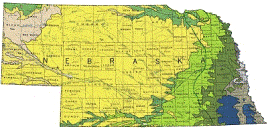United States Geological Survey

United States Geological Survey: Staff Publications
Document Type
Article
Date of this Version
4-15-2011
Citation
2011 Elsevier Masson SAS. All rights reserved.
Abstract
Seed selection, removal and subsequent management by granivorous animals is thought to be a complex interaction of factors including qualities of the seeds themselves (e.g., seed size, nutritional quality) and features of the local habitat (e.g. perceived predator risk). At the same time, differential seed selection and dispersal is thought to have profound effects on seed fate and potentially vegetation dynamics. In a feeding arena, we tested whether rodent species, seed species, and indirect and direct predation cues influence seed selection and handling behaviors (e.g., scatter hoarding versus larder hoarding) of two heteromyid rodents, Ord’s kangaroo rat (Dipodomys ordii) and the Great Basin pocket mouse (Perognathus parvus). The indirect cue was shrub cover, a feature of the environment. Direct cues, presented individually, were (1) control, (2) coyote (Canis latrans) vocalization, (3) coyote scent, (4) red fox (Vulpes vulpes) scent, or (5) short-eared owl (Asio flammeus) vocalization. We offered seeds of three sizes: two native grasses, Indian ricegrass (Achnatherum hymenoides) and bluebunch wheatgrass (Pseudoroegneria spicata), and the non-native cereal rye (Secale cereale), each in separate trays. Kangaroo rats preferentially harvested Indian ricegrass while pocket mice predominately harvested Indian ricegrass and cereal rye. Pocket mice were more likely to scatter hoard preferred seeds, whereas kangaroo rats mostly consumed and/or larder hoarded preferred seeds. No predator cue significantly affected seed preferences. However, both species altered seed handling behavior in response to direct predation cues by leaving more seeds available in the seed pool, though they responded to different predator cues. If these results translate to natural dynamics on the landscape, the two rodents are expected to have different impacts on seed survival and plant recruitment via their different seed selection and seed handling behaviors.
Included in
Geology Commons, Oceanography and Atmospheric Sciences and Meteorology Commons, Other Earth Sciences Commons, Other Environmental Sciences Commons


Comments
Acta Oecologica 37 (2011) 321-328 doi:10.1016/j.actao.2011.03.004